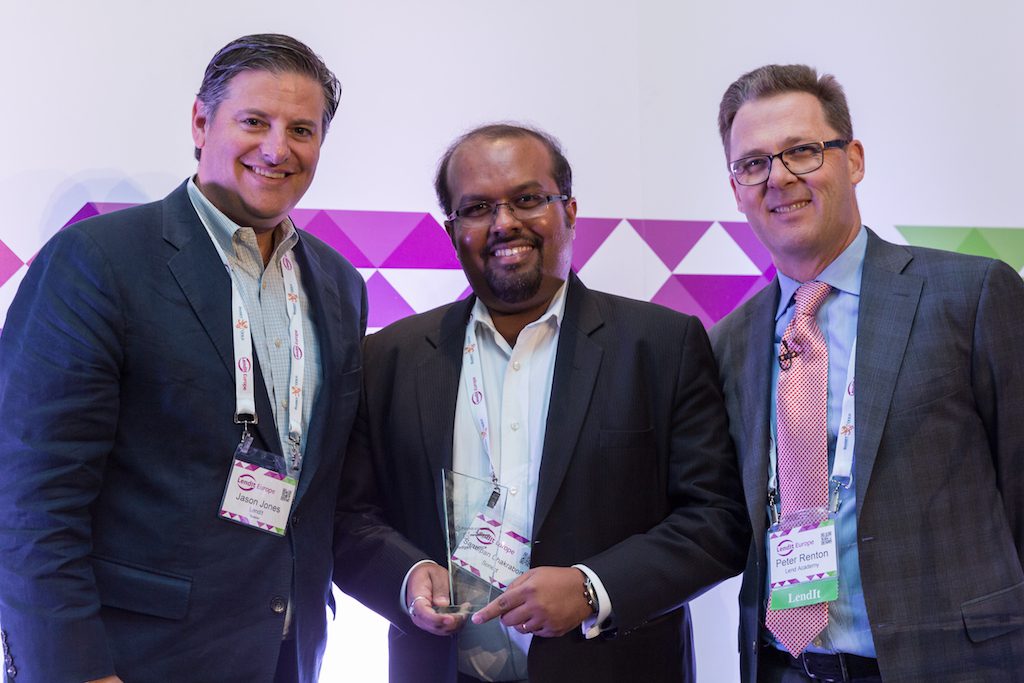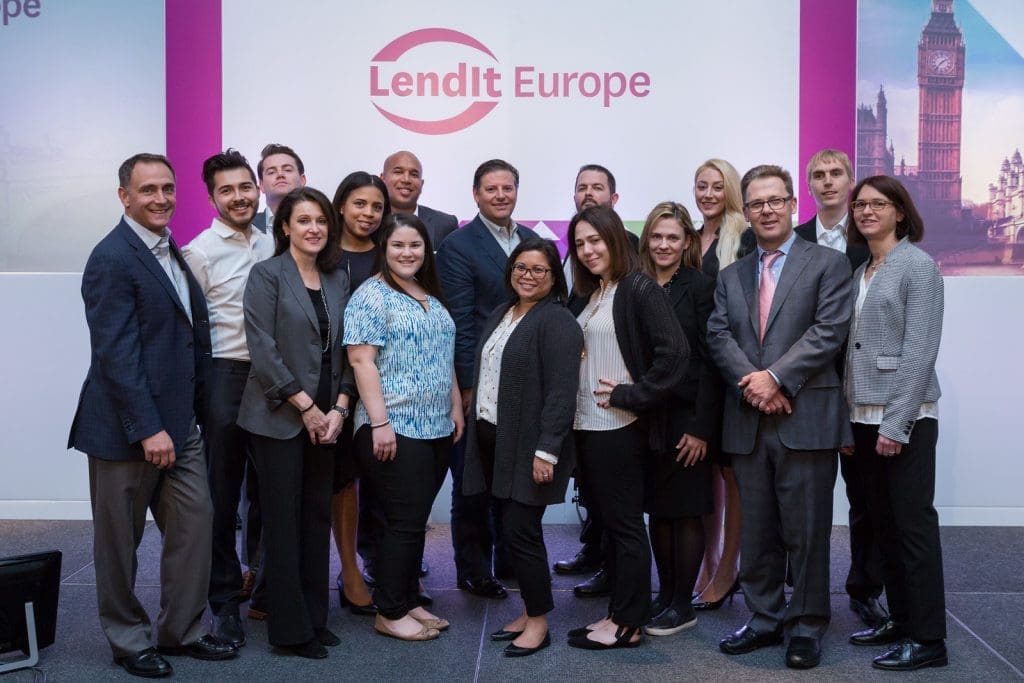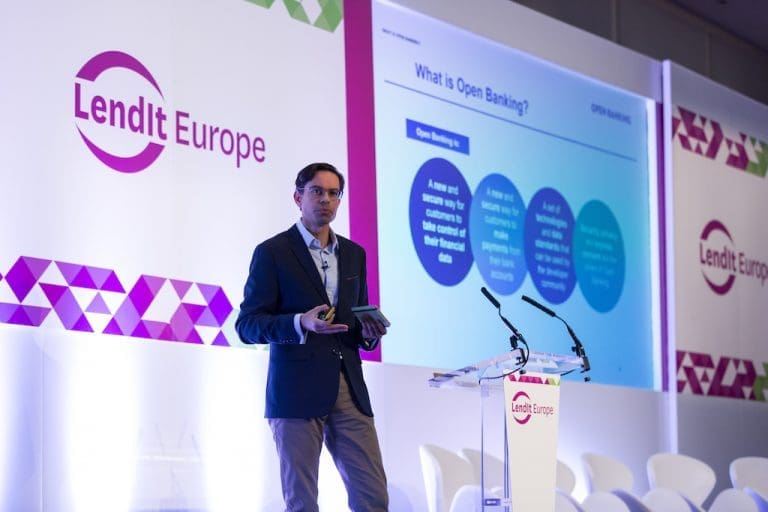
The fourth annual LendIt Europe event was in London earlier this week with around 1,100 people in attendance. Here are my key takeaways, focusing mainly on the keynote sessions.
We kicked off the event with Imran Gulamhuseinwala, the Global Head of Fintech for EY and also the head of the UK’s Open Banking initiative. Open banking is mandated to arrive in January 2018 and Imran is in charge of making sure this process goes smoothly. He delivered an optimistic message saying that open banking is simply an idea whose time has come.
He made it clear that this is all for the consumer, that the consumer is at the center of open banking. He put forward the idea that making transaction level data available to innovative fintech platforms should bring more people into the financial system. There will be one API to cover all of open banking and enrolment in the open banking directory begins this Friday, October 13. He ended with a call to action. Open banking will not be a success unless the fintech platforms embrace it and seize on this new opportunity.
Next up was Jaidev Janardana, the CEO of Zopa, who put forward his vision for the future of banking. The theme for his discussion, which ended up being a theme repeated throughout the event, was that the customer needs to be the starting point for all banking products. He chided banks today for making banking a zero-sum game where the bank wins and the customer loses.
Zopa is trying to build a bank where incentives are aligned between the bank and the customer. Every bank product should be a win-win. The reality is that our bank knows so much about us but their service is not personal. It should be. Jaidev shared that Zopa intends to offer four bank products: unsecured personal loans (something they already offer in their P2P lending business), credit cards, savings accounts and auto loans.
We heard from IBM and Deutsche Bank on a new AI initiative they have implemented for doing KYC that reduced the time to on board a new customer from 13 minutes to 5 minutes. Kadhim Shubber from the FT chaired a discussion with Mambu and new online small business lender, New10. They are a new platform launched recently by Dutch bank ABN Amro. It was fascinating to learn the founding story of New10 and how they have tried to make it as “un-banklike” as possible. They were able to create New10 from conception to launch in just 10 months – that would not have been possible with traditional bank thinking.
In a panel on changing customer expectations Anne Boden, the CEO of Starling Bank (a new UK digital bank) put forward an interesting idea. She said that not only should customers be at the center of a bank’s business, as others had suggested, but they should also be part of the development of new products. She said customers want to be part of building something, that they should be able to debate product features and design, so they are truly part of the creation process.
Nick Ogden, the CEO of ClearBank, the first new UK clearing bank in 250 years, talked about how the power is shifting to the consumer in financial services for the first time. In a lively panel discussion on small business lending, the CEO of Funding Circle, Samir Desai, said that many of their customers like interacting with Funding Circle precisely because it is not a bank. On a panel with the other two largest small business lenders in the UK (Lloyds and RBS – both banks), Samir remained staunchly focused on the benefits of remaining a pure marketplace and not becoming a bank – in contrast to Zopa. He said that Lloyds trades at one times book value and RBS at 0.6 times meaning they are not creating value for shareholders. This low return on equity translates in effect to a higher cost of capital for their shareholders.
In the afternoon, we split into three tracks with more than a dozen sessions that I won’t try to summarize here.

Day two was headlined by Renaud Laplanche, the CEO of Upgrade, in his first appearance at LendIt Europe. He talked about how more complete data will make underwriting better in online lending 2.0. He also gave three predictions for the near future:
- The growth of online lending will accelerate in the next 15 months
- An organized secondary market for online loans will emerge in the next 15 months
- The re-bundling of financial services will give birth to at least one major product innovation in 2018
It is this third prediction that is most interesting to me. It was mentioned not just by Renaud but in other sessions as well. In the UK this re-bundling has been going on now for a couple of years with many app-based digital banks or neo banks beginning to offer a suite of financial services. I don’t know exactly what Renaud has in mind here as far as new product innovation but I agree with the trend – finance is digitally re-bundling.
Antony Jenkins, the former CEO of Barclays and founder of 10x Future Technologies, talked about some of the myths surrounding artificial intelligence. He dismissed the idea that AI will somehow become sentient and take over from humans but he did say that an ethical framework for AI needs to put in place by government. He also said that banks are at a disadvantage here. With innovation like AI you need to move fast and fail fast. Banks are not good at moving fast and they will need to change their culture if they expect to lead in the wave of AI innovation that is coming.
One of my favorite panels of the conference was our banking panel. We invited the heads of innovation from many of the leading European banks: Lloyds, Barclays, HSBC, BBVA and ING. It was refreshing to hear from innovation leaders who are acutely aware of their bank’s strengths and weaknesses. Many talked about bringing more of a startup culture to their bank. Benoit Legrand of ING wants his bank to become essentially invisible (like oxygen) – critical but only really noticed when you need it. Here is another interesting quote: banks are more interested in capabilities than new propositions. They said startups need to focus on developing capabilities before coming to a bank with a great new idea.
I chaired a panel on the US online lending market with Renaud, Karen Mills (former head of the SBA in the Obama Administration), Perry Rahbar of dv01 and Meg Zwick of Millennium Trust. One of the interesting topics we discussed was the possibility of Google, Amazon, Facebook or Apple becoming a dominant force in financial services. Both Google and Amazon have small business lending operations already and the regulators may be open to these companies obtaining a banking license of some kind. Karen Mills thinks that these big companies are the ones to watch as lending moves into its next phase.
Christoph Rieche is the CEO and co-founder of iwoca, an online small business lender. He showed a video of one of their clients going to visit a branch of three of the biggest banks in the UK to try to obtain a small business loan. It was a little comical as this person was told again and again that he could not even apply for a loan at that time. Christoph announced on stage that his company was releasing an open source API and teaming up with Tide, a mobile-first banking service. In less than a year Tide is now responsible for 7% of all new UK business current (checking) accounts. George Bevis, the CEO of Tide, demonstrated how easy and quick it is now for his customers to obtain a small business loan via their app using the iwoca API.
Revolut is the most talked about fintech company in Europe, having raised £50 million recently and releasing new products at an astonishing rate. Their CEO, Nikolay Storonsky, is a man on a mission and in his keynote he talked about how they are able to grow so fast. Revolut is part of this new re-bundling trend that Renaud talked about. They offer debit cards, foreign exchange, consumer loans, mortgages, insurance and will soon be offering merchant accounts and cryptocurrencies.
Shane Williams, the co-founder of UBS SmartWealth talked about the challendges of starting a fintech initiative inside a large bank. We ended the morning keynotes with a presentation from Rory McHugh, a former RBS investment banker, who quit his job earlier this year and realized his dream of climbing Mt. Everest. He gave an entertaining presentation on what he learned in this process.

On day two we also held our popular PitchIt @ LendIt competition. It was standing room only as attendees clamored to hear from the eight innovative startups that were presenting. The winner of both the Judges Choice Award and the Audience Choice Award was the Swiss startup Sonect. They provide an ATM alternative in a platform approach where retailers become the place where cash is withdrawn. It is a really interesting idea and this company is one to keep an eye on.
Beyond the educational sessions we had a full expo hall that was buzzing the entire event. The thing I got the most positive feedback on was our 1-on-1 networking tool. Called Brella, this unique matching tool not only allowed people to setup meetings but also recommended those people who were a good fit. We had well over 1,000 meetings that took place over the course of the event and many people found valuable connections.
So, the broad themes of the event were making the customer the center of financial services and the re-bundling of finance as the world moves to mobile. Also, banks have moved beyond research and planning and into action. Several new online and mobile initiatives at banks were discussed. With this in mind maybe the future for fintech platforms is to team up, much like iwoca and Tide have done.
I would like to end by saying thank you. Thanks to everyone who attended and sponsored, I also appreciated everyone who came up to me to say hi. Finally, thanks to all the great LendIt staff who made the event run flawlessly.



